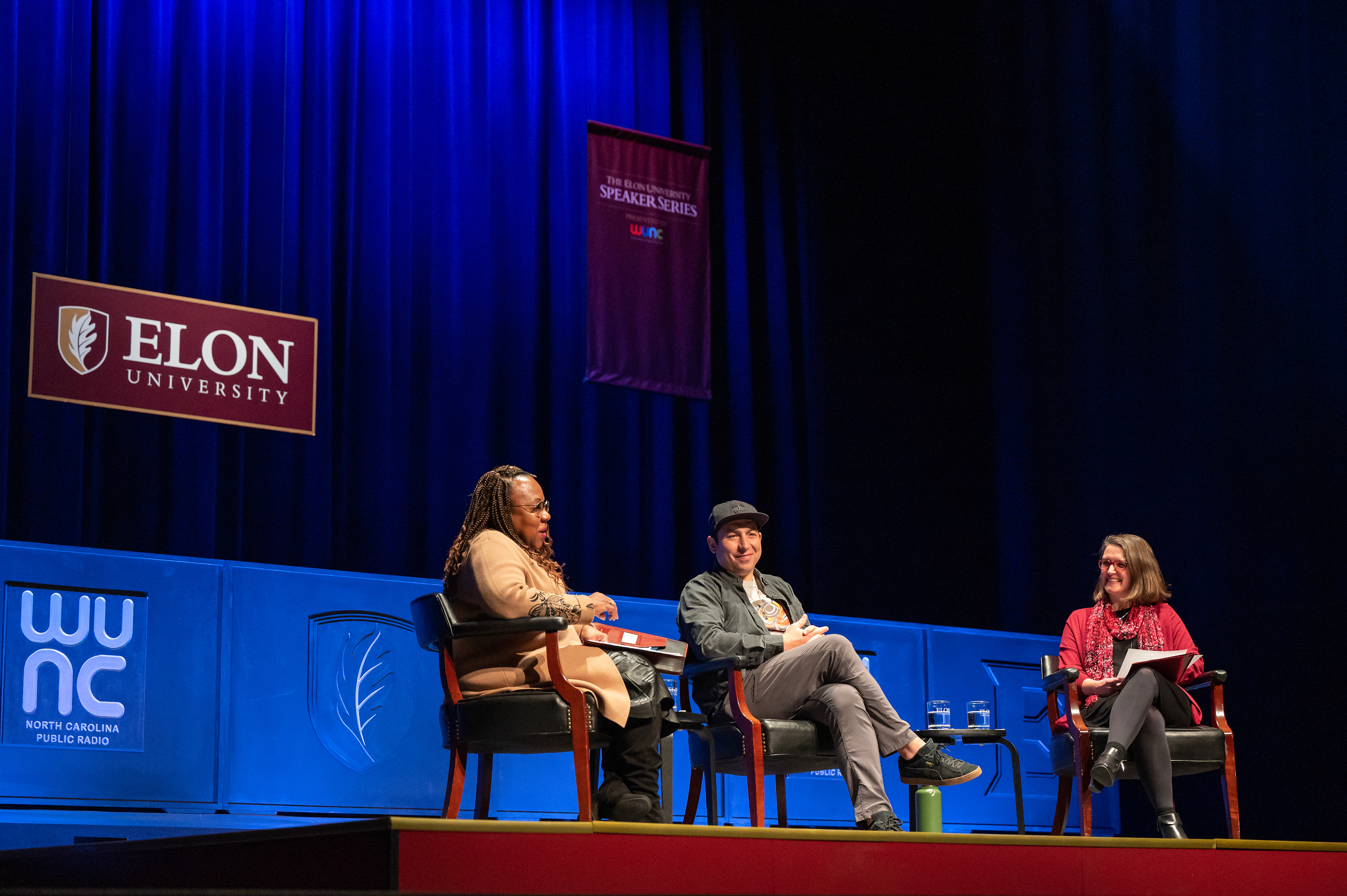Orange, an award-winning author, delivered the 2023 Martin Luther King Jr. Commemorative Address on Tuesday, Jan. 10, as a part of a month-long recognition and celebration of Dr. King's legacy and the 2022-23 Elon University Speaker Series.
Tommy Orange set out to reclaim and retell Native American stories when writing “There There,” his remarkable 2018 Pulitzer Prize-nominated work about 12 characters whose journeys merge at the Big Oakland Powwow, an event that ends in tragedy.
Orange sat down with Wendy Scott, associate dean for academic success at Elon Law and Deandra Little, associate provost for faculty development, to discuss the book and its significance during the annual Martin Luther King Jr. Commemorative Address at Elon University.
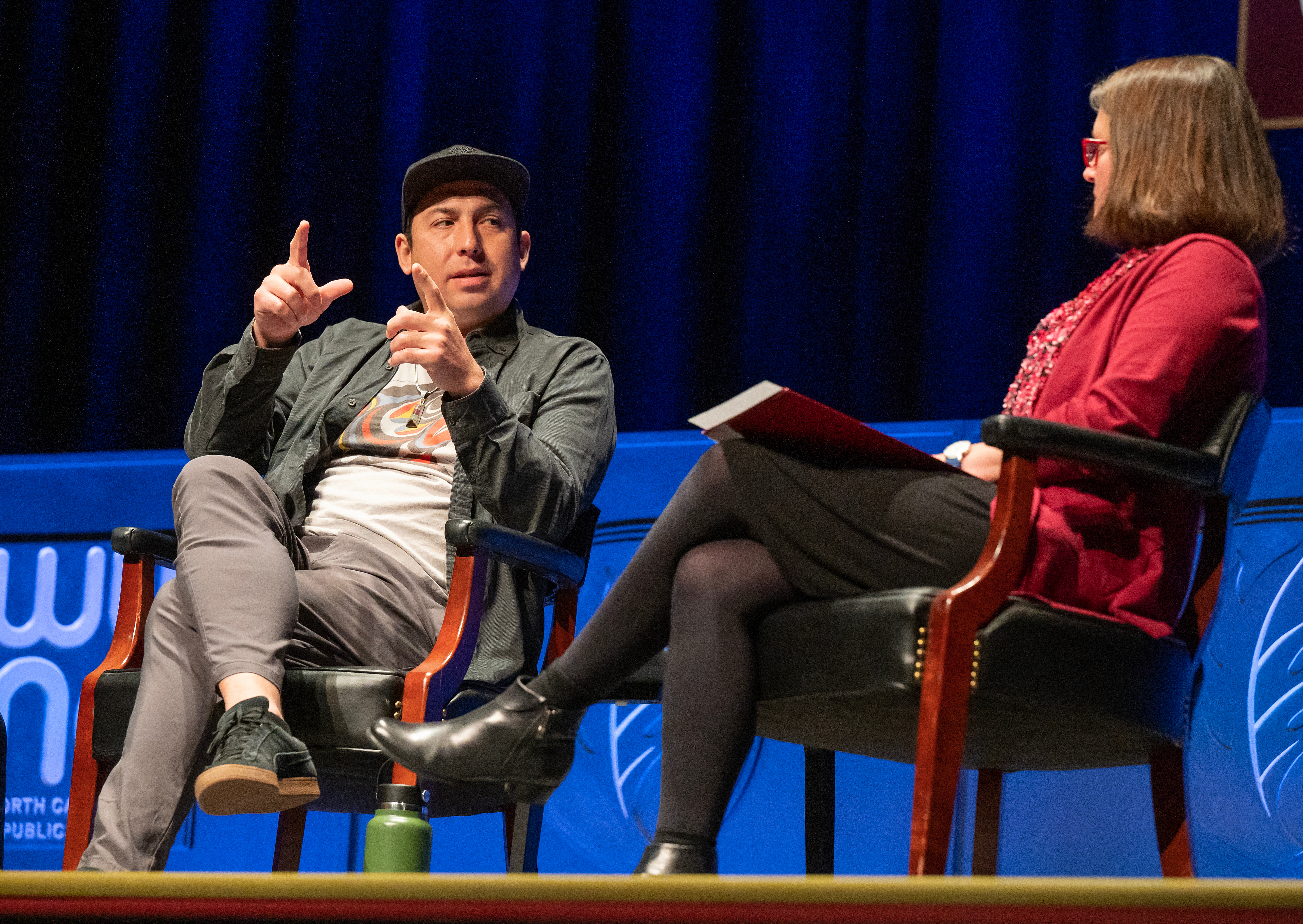
“‘Story’ is one of those words that is so ubiquitous and overused, you almost lose the meaning of it. In the Native context, it feels weighted on the oral storytelling tradition side of things. The way I’m using it … has a little more to do with the history of us not being able to tell our own stories,” Orange said to dozens of attentive attendees at McCrary Theatre on Tuesday night.
The story of Native people is largely discounted, or when it is told it’s given a sanitized, “Pilgrim-laden” treatment, especially in public schools, he noted. So much so that when Orange’s 11-year-old son came home with a pamphlet misrepresenting the experience of Natives as he knows it, he and his wife decided to take him out of class for a week.
“The stories that are told that are meant to reconfirm the pure foundations of this country are, to me, not far from brainwashing,” Orange said. Story is “such a weaponized thing that we don’t necessarily think of in that way. It’s such a powerful word … but for Native people who have our stories told for us for too long, it’s especially powerful and potent. The ability for us to tell our own stories and reclaim a lot of the space on the page … is important for us to take it back.”
Orange started writing “There There” knowing the novel would come to a grievous conclusion. But along the way, there were many areas of the modern Native American experience, inspired by personal moments and the lives of people he knows, he wanted to tackle.
The most potent of the topics explored, perhaps, is that of identity. Several scenes in the book deal with characters struggling with their distorted reflections in mirrors and characters avoiding looking into mirrors.
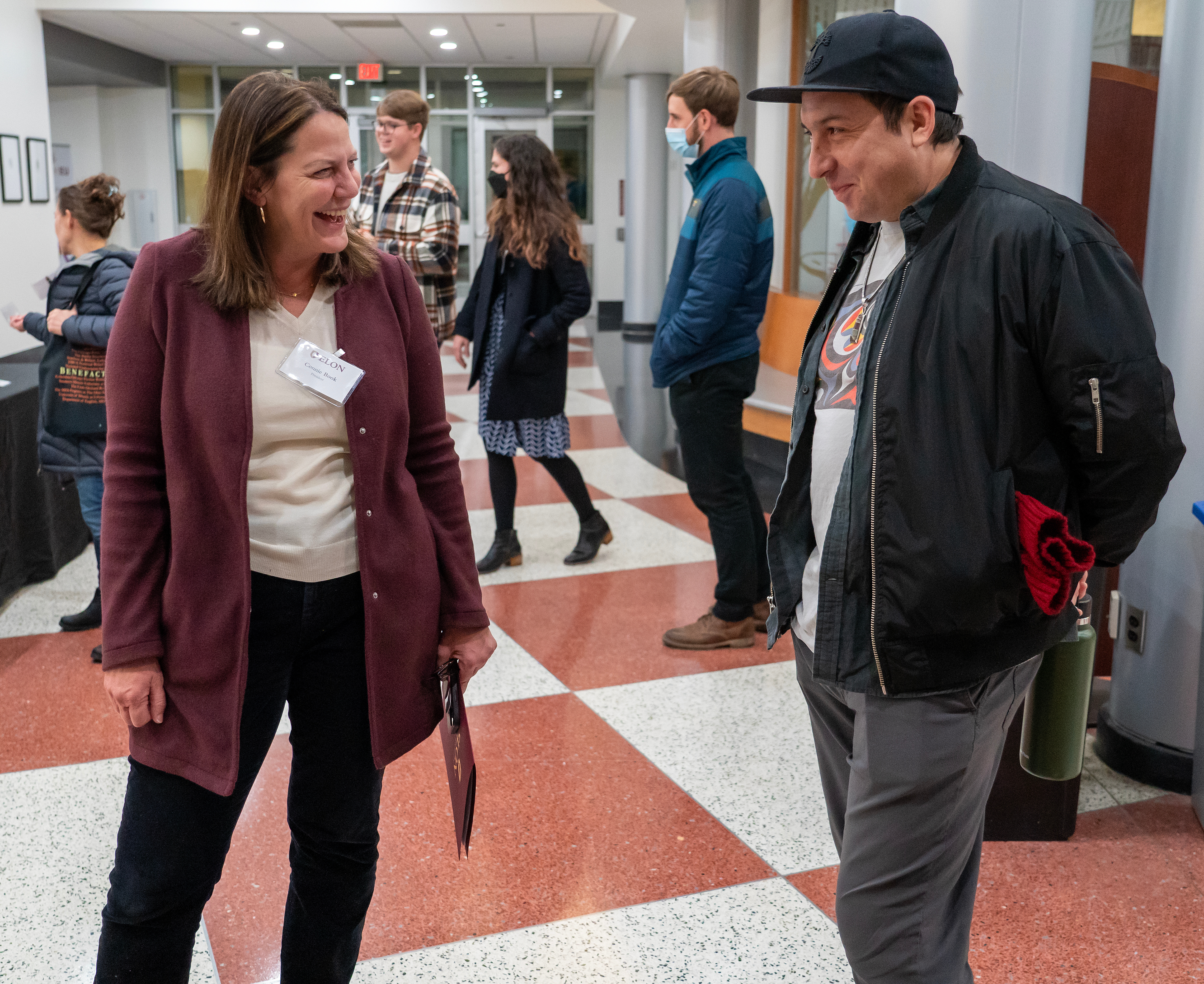
These moments are a direct reflection of how the complicated view of Native people in the overall society plays a part in individuals struggling to internalize their identities. Orange, like the character of Edwin in “There There,” is biracial. Orange’s father is Native and his mother is white, and he is an enrolled member of the Cheyenne and Arapaho Tribes of Oklahoma.
Many tribes have “blood quantum” systems, which restrict who can be a citizen of a tribe based on Native blood percentage. Although Orange is enrolled, his son fell below the original 25% threshold of the Cheyenne and Arapaho tribes and was denied enrollment. Later, the tribes lowered their required blood percentage to 12.5%, allowing Orange’s son and many others to connect with their heritage. This flawed system has created more problems than it’s worth, Orange said.
“What would it do to my son over time if he could never enroll in the tribe, to belonging the way he would think about belonging, to being Native himself,” Orange said. “It’s not a permanent solution. The whole setup is wrong but it’s super complicated for Native people.”
One way of dealing with this identity crisis, Orange said, is through education. A lot of times Native people are discouraged, even punished, for challenging the whitewashed history or speaking their language in schools, he said.
“There are all these stories that are told about us that don’t come from us,” Orange said.
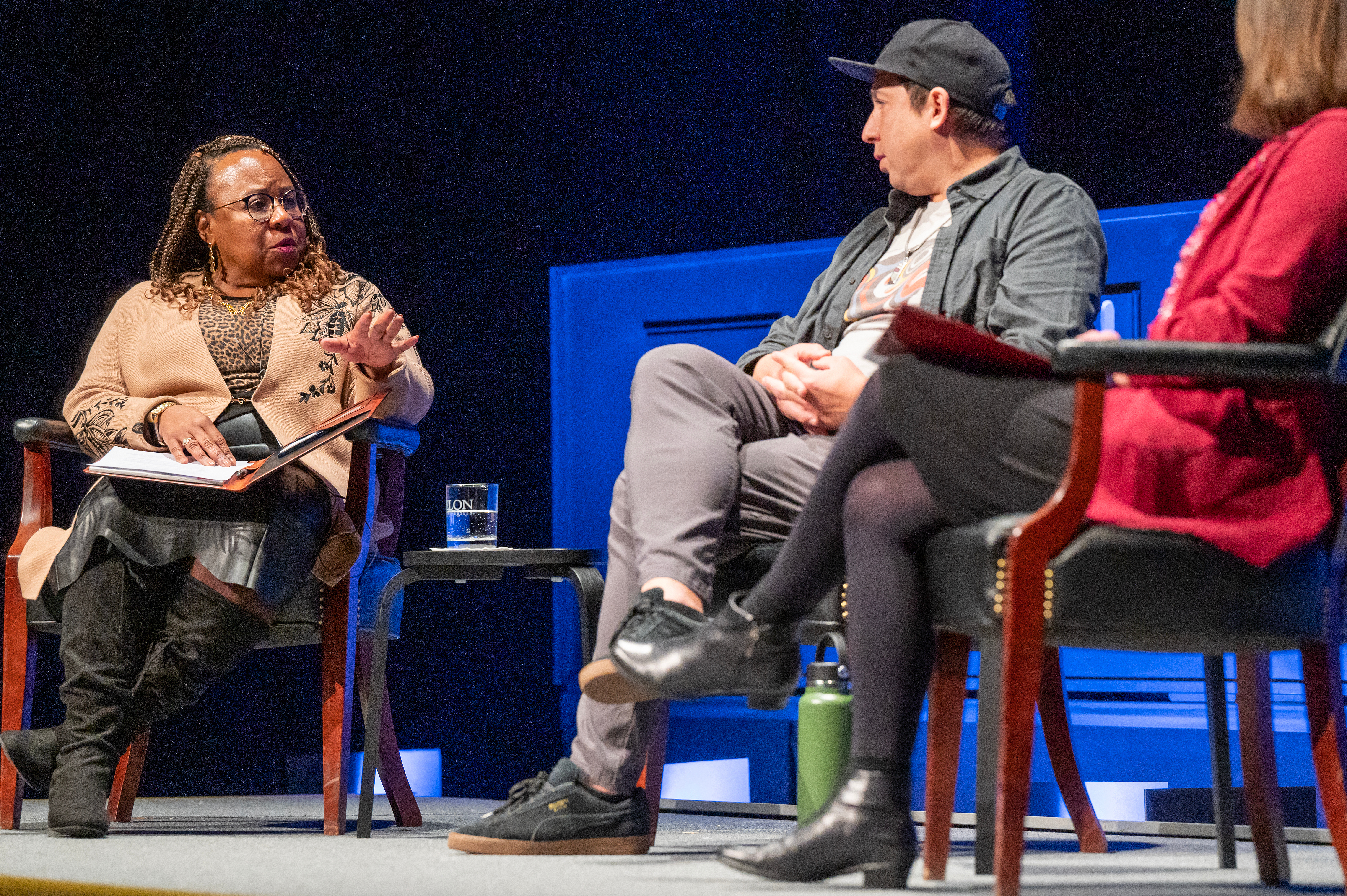
Honoring the legacy and work of Martin Luther King Jr., the MLK Commemorative Address is an annual event at Elon and is part of the Elon University Speaker Series. During the conversation, Scott asked for Orange’s thoughts on a quote from King on the atrocities the Natives faced. “We are perhaps the only nation which tried, as a matter of national policy, to wipe out its Indigenous population. Moreover, we elevated that tragic experience into a noble crusade,” King wrote in his 1963 book, “Why We Can’t Wait.”
“I couldn’t agree more with this idea,” Orange said. “I would like to not just completely condemn the people who continue to perpetuate ignorance. I just think this idea that you’re helping the people who are marginalized by rethinking everything or losing your privilege is a wrongheaded way to think about equality in this country and reckoning with its past.
“The right way to think about it is why would you want to belong to that story? If you know all the facts, why would you want to belong to this story that says, ‘No, it’s actually noble and great, and we can make it great again’?” he added.
Randy Williams, vice president and associate provost for inclusive excellence, welcomed Tony Hayes, tribal chairman of the Occaneechi-Saponi Indian Tribe, and Vickie Jeffries, tribal administration of the Occaneechi-Saponi Indian Tribe.
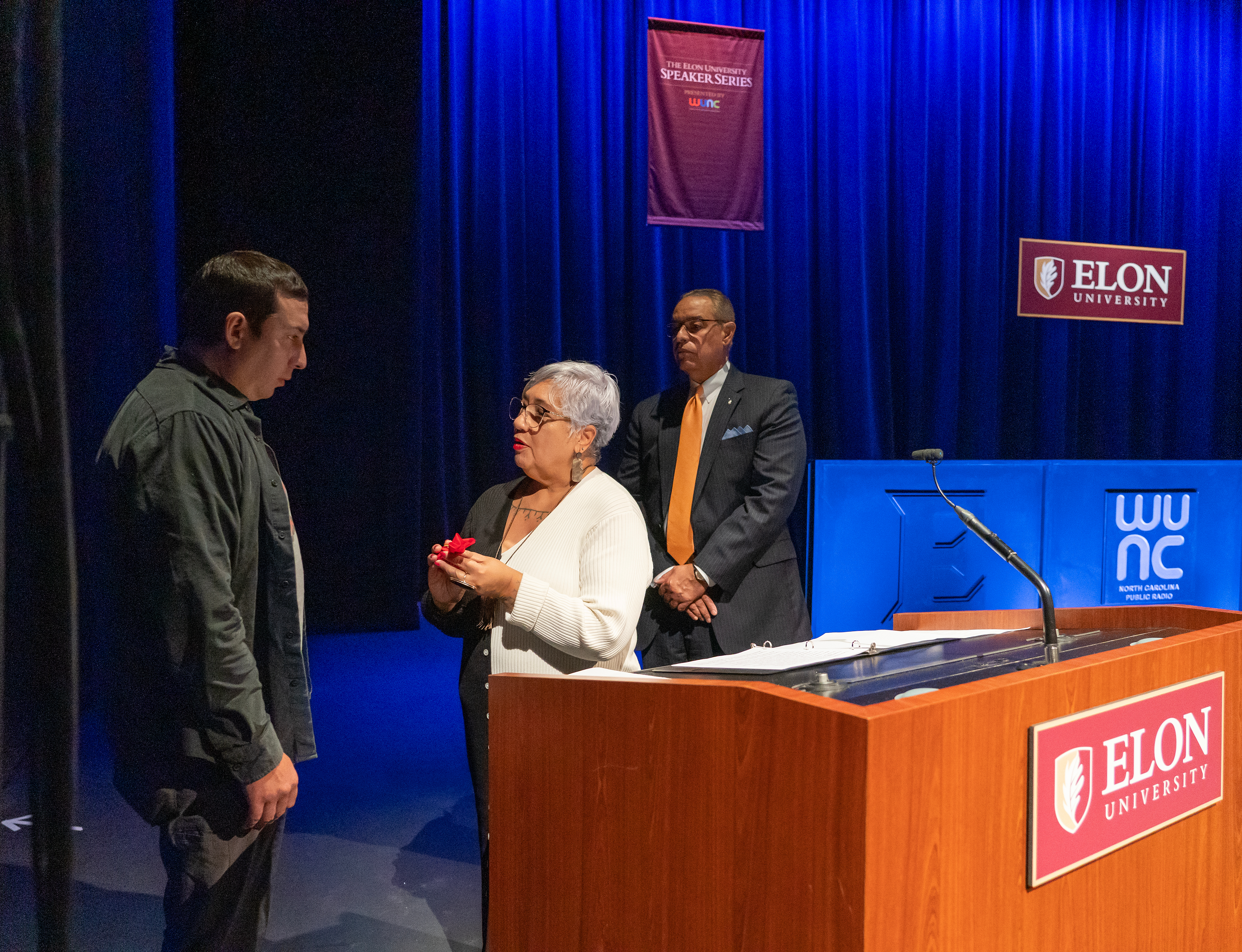
Hayes and Jeffries gave Orange an offering of tobacco and read the land acknowledgment for the lands Elon currently occupies.
“You’re all welcome here,” both told the crowd in English and the tribe’s native language.
The university is celebrating the life and legacy of Martin Luther King Jr. with events throughout January.



